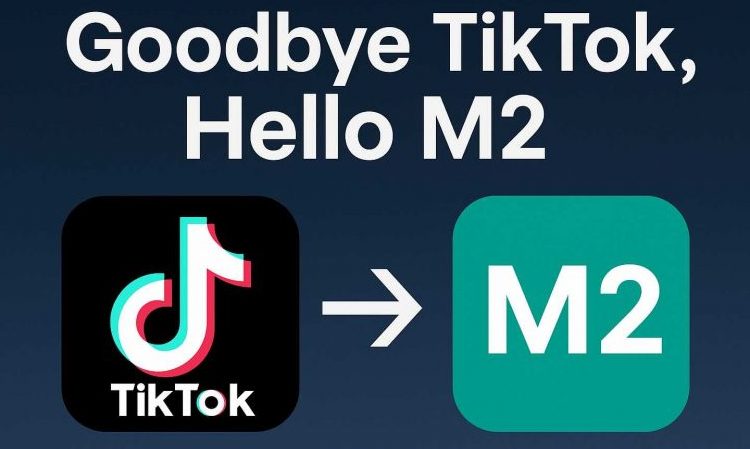The Trump administration has initiated a sweeping reduction of the federal workforce, targeting key health agencies, including the Centers for Disease Control and Prevention (CDC) and the Food and Drug Administration (FDA).
This move is part of a broader effort by President Donald Trump and billionaire entrepreneur Elon Musk to cut 10,000 jobs within the Department of Health and Human Services (HHS) as part of a cost-saving initiative, according to sources familiar with the situation.
Budget Savings and Economic Uncertainty
Supporters argue that the mass layoffs will reduce government spending, potentially lowering the national deficit. With fewer employees on the federal payroll, operational costs in agencies such as the FDA and CDC will decrease, redirecting taxpayer funds to other priorities. Additionally, proponents claim that trimming government bureaucracy could improve efficiency by eliminating redundancies.
However, the broader economic impact remains uncertain. While reducing federal employment may shrink government expenditures, the sudden removal of thousands of jobs could have ripple effects on the economy.
Laid-off workers may struggle to find new employment in the private sector, potentially increasing unemployment rates and reducing consumer spending. Additionally, decreased regulatory oversight in industries such as pharmaceuticals and food safety may lead to market instability.
Layoffs and Their Impact on Health Agencies
On Tuesday, dozens of employees at the CDC and FDA were dismissed, including prominent leadership figures. Brian King, head of the FDA’s Center for Tobacco Products, was among those terminated, according to an internal email reviewed by sources. Additionally, Peter Stein, director of the Office of New Drugs within the FDA’s Center for Drug Evaluation and Research, resigned following the administration’s decision to streamline operations.
These terminations come as the Trump administration continues its aggressive push to restructure the federal government, a move that has sent shockwaves across multiple agencies. Reports indicate that FDA staff responsible for reviewing medical products are struggling to meet deadlines due to abrupt workforce reductions. An FDA employee, speaking anonymously, described chaotic scenes where terminated staff were required to present their badges at the building entrance before being given a dismissal ticket and sent home.
At the CDC, the layoffs have affected divisions such as the National Center for Environmental Health, the Substance Abuse and Mental Health Services Administration, and the National Center for Immunization and Respiratory Diseases. The loss of personnel in these critical areas has raised concerns about potential slowdowns in public health initiatives, including vaccine distribution and substance abuse prevention efforts.
Broader Context of Government Layoffs
The mass firings are part of a larger pattern of workforce reductions across various federal agencies under the Trump administration in 2025. The restructuring has sparked concerns about potential service delays and operational disruptions in sectors beyond health.
Public Reaction and Political Ramifications
The layoffs have sparked widespread debate across political and economic circles. Supporters of the cuts argue that the federal government has been bloated for years, with excessive spending leading to inefficiencies. They view the reductions as a necessary step to ensure fiscal responsibility and reallocate resources to areas that need them most, such as national security and infrastructure projects.
Critics, however, argue that cutting jobs in critical health agencies could have long-term consequences for public safety. With the FDA and CDC overseeing vital programs like drug approval, disease prevention, and food safety, there are growing concerns that these layoffs could lead to slower response times in public health emergencies. Some experts warn that reduced oversight could increase health risks, particularly in areas such as vaccine distribution, pandemic response, and the regulation of food and pharmaceutical industries.
Federal Layoff Events Under Trump’s 2025 Workforce Overhaul
| Date | Agency Affected | Positions Cut | Key Figures Departed |
|---|---|---|---|
| January 15 | Department of Energy | 3,500 | N/A |
| February 10 | Environmental Protection Agency | 2,000 | Andrew Wheeler (Administrator) |
| March 4 | Department of Health and Human Services | 10,000 | Brian King (FDA), Peter Stein (FDA) |
| April 1 | Department of Education | 5,000 | N/A |
| April 15 | Department of Transportation | 1,500 | N/A |
| May 2 | Department of Housing and Urban Development | 2,800 | N/A |
Balancing Fiscal Responsibility with Economic Stability
While the administration’s cost-cutting measures may alleviate government spending pressures, economic experts warn of unintended consequences. The U.S. labor market could experience setbacks if laid-off federal employees struggle to find comparable private-sector jobs. Furthermore, the loss of experienced professionals in critical agencies may lead to regulatory gaps that could negatively affect industries reliant on government oversight.
In addition, local economies that rely on federal jobs may suffer. Towns with large government facilities, such as those near CDC and FDA headquarters, could experience economic downturns as thousands of workers lose their income, reducing consumer spending in those areas.
Some economists suggest that while cutting government jobs can reduce immediate spending, the long-term effects on the economy could be mixed. Lower consumer spending, slower regulatory processes, and potential public health risks may outweigh the initial cost savings. The key to making these cuts successful, according to experts, will be ensuring that the displaced workers can transition into new employment opportunities within the private sector.
What Comes Next?
With the Trump administration signaling that more government job cuts may be on the way, federal employees across multiple agencies remain on edge. The administration has hinted at further reductions in areas such as the Department of Veterans Affairs and the Department of Homeland Security. This ongoing effort to reshape the federal workforce will likely be a major point of debate leading into the next election cycle, as lawmakers, business leaders, and the general public weigh the pros and cons of these dramatic changes.
Sources
- HHS Official Announcements: www.hhs.gov
- FDA Newsroom: www.fda.gov
- CDC Public Statements: www.cdc.gov
As the administration moves forward with its restructuring efforts, the long-term impact of these layoffs on public health, government spending, and economic stability remains to be seen.
Regional and Industry-Specific Impacts of the Health Agency Layoffs
The Trump administration’s mass layoffs at the CDC, FDA, and HHS will have varying effects depending on the region and industry. Below is a breakdown of how different sectors and geographic areas may feel the impact.
Regional Impact
Washington, D.C. & Maryland (Federal Health Headquarters)
- The Washington, D.C. metropolitan area is home to thousands of federal workers in agencies like the FDA, CDC, and HHS.
- Impact: Local economies in D.C., Maryland, and Virginia may suffer as unemployed professionals cut back on spending in restaurants, retail, and housing.
- Housing Market: Potential increase in home sales as laid-off employees relocate for new jobs.
Atlanta, Georgia (CDC Headquarters)
- Atlanta houses the Centers for Disease Control and Prevention (CDC), which has been heavily affected by the layoffs.
- Impact: Loss of research staff could slow response times for disease outbreaks and public health initiatives in the region.
- Local Economy: Businesses reliant on CDC employees—restaurants, daycare centers, and contractors—could struggle.
Boston & San Francisco (Biotech and Pharmaceutical Hubs)
- Boston and the Bay Area have high concentrations of biotech firms that depend on FDA drug approvals.
- Impact: Regulatory slowdowns may delay drug launches, affecting biotech investments and clinical trials.
- Stock Market Fluctuations: Layoffs in the FDA’s drug review department may trigger uncertainty for pharmaceutical companies and investors.
Rural & Low-Income Communities
- Many CDC and HHS programs focus on underserved areas, particularly in the South and Midwest.
- Impact: Fewer resources for substance abuse prevention, maternal health, and vaccination programs in rural America.
- Healthcare Access: Some state-funded health initiatives may struggle without federal guidance or grants.
Industry-Specific Impact
Pharmaceutical & Biotech Industry
- With FDA drug reviewers being laid off, the approval process for new medications may slow.
- Impact: Drugmakers could face delays in launching new treatments, affecting stock prices and market competition.
- Investment Risk: Investors may be hesitant to back new drug startups if approval timelines become uncertain.
Healthcare Providers (Hospitals, Clinics, Public Health Centers)
- Many hospitals and clinics rely on CDC recommendations and HHS funding for public health initiatives.
- Impact: Reduced oversight may lead to delays in vaccine distribution, affecting patient care.
- Rural Health Clinics: Community-based health centers may see funding gaps, limiting services for lower-income patients.
Food & Agriculture Industry
- The FDA regulates food safety, and layoffs in this area may mean fewer inspections.
- Impact: Slower responses to foodborne illness outbreaks could hurt consumer confidence.
- Supply Chain Issues: Import/export regulations may be affected, impacting food producers and retailers.
Stock Market & Business Sector
- Companies in healthcare, biotech, and consumer goods may face regulatory uncertainty, leading to market volatility.
- Impact: Potential drops in stock prices for FDA-reliant companies like Pfizer, Moderna, and Johnson & Johnson.
- Investor Confidence: Reduced federal oversight may lead to both opportunities (less regulation) and risks (public safety concerns).
Final Thoughts
While the layoffs may reduce federal spending, their broader impact on public health, local economies, and key industries remains uncertain. Job losses in high-skilled sectors like biotech, healthcare, and public health could create ripple effects that affect consumers, businesses, and investors alike.






